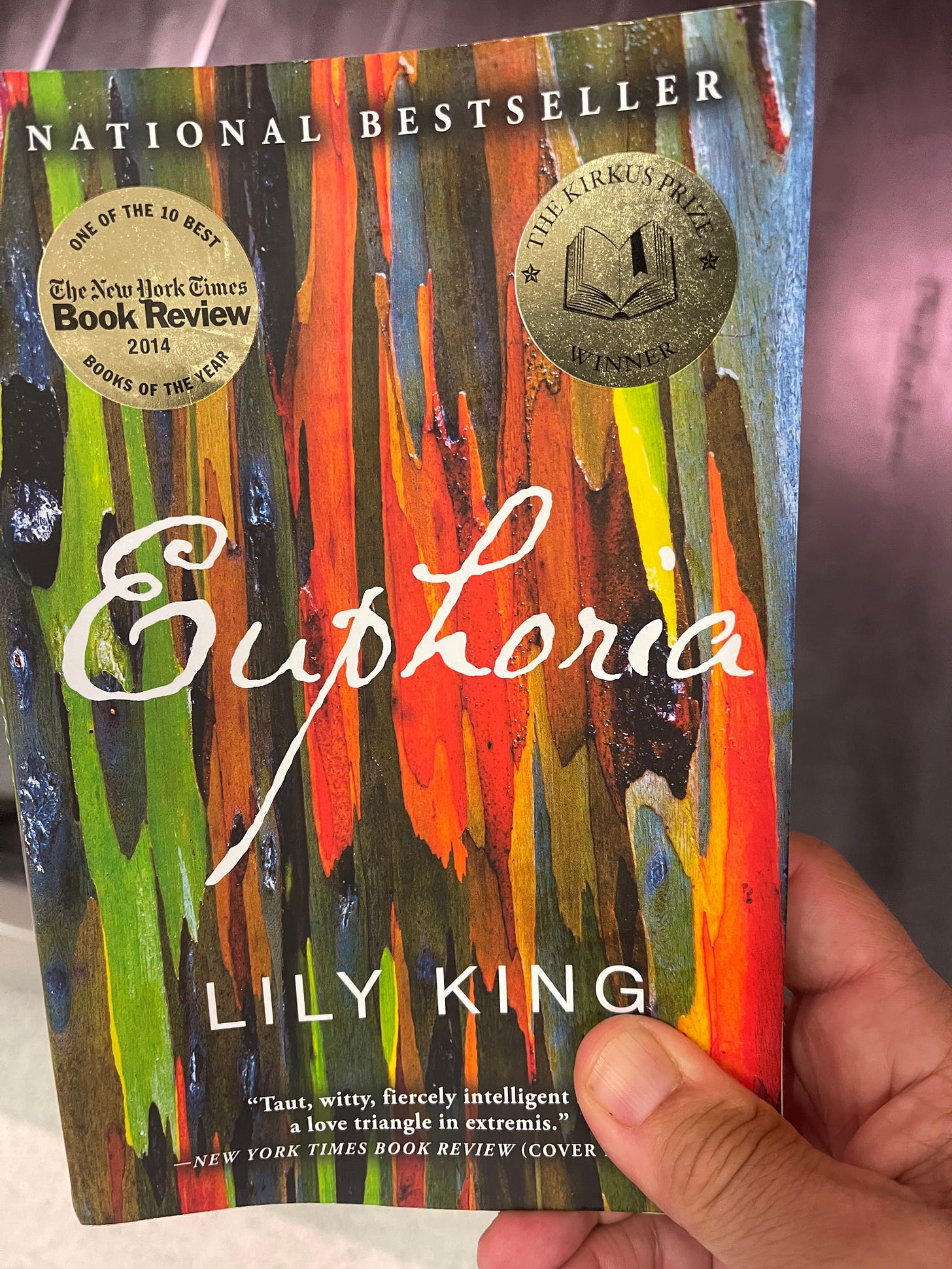Being unplugged from New York City for a week, and from world news in general, I got some idea of what it feels like to be isolated, off-the-grid, out-of-pocket, and unplugged.
But maybe, just maybe, cycling through the wilds of Oregon afforded the ideal opportunity to truly understand Lily King’s “Euphoria, a wonderful roman a clef about the love triangle that developed between anthropologist Margaret Mead, her second husband, and the man that would become her third husband, while they were studying various tribes together in remote New Guinea during the 1930s.
To be candid, one might not automatically think the sex lives of anthropologists would hold much erotic charge. But King, in understated, poetic and yes cinematic language (this would make a great movie) succeeds. At the same time, she touches on topics like cultural relativism (why so-called underdeveloped cultures are just as “valid” as Western ones) as well as the competitiveness of scientists to be the first to discover something, write up a paper, and make a quick buck. As well as the evil ends they resort to, to do so.
“Euphoria” was a NYT critics pick seven years ago, and because of the story and the prose, it’s easy to see why. Plus, it puts the lie to the notion that Mead was a fussy old windbag working in a field most people have no interest in. She was as much a human being as the rest of us. Emphasis on human.



